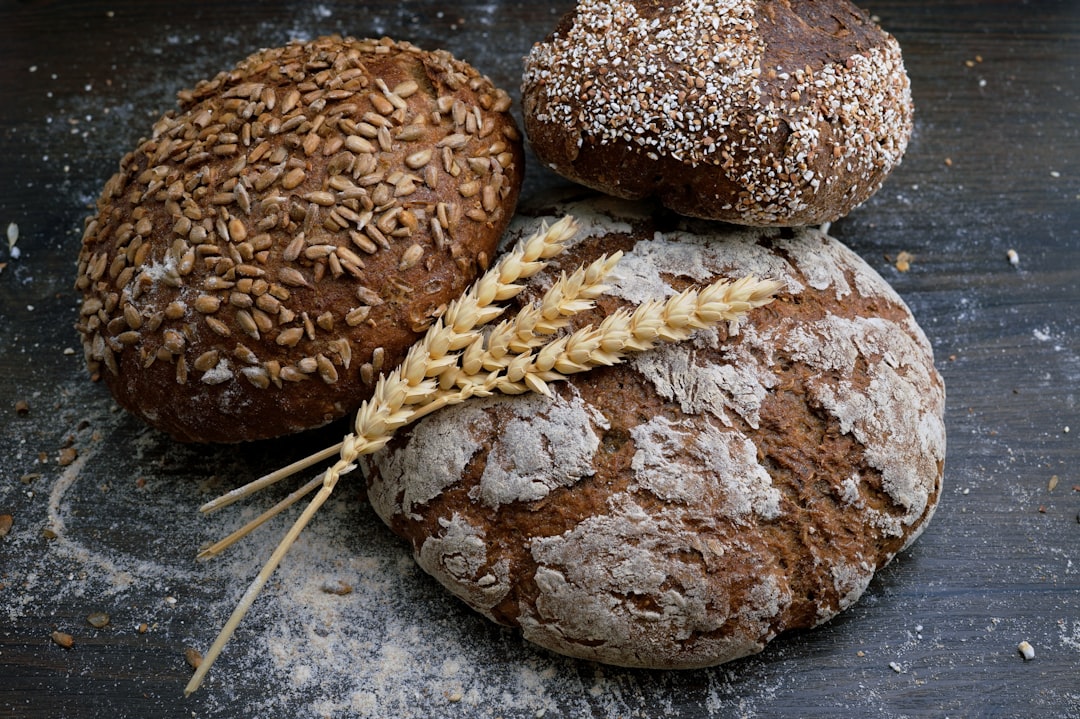Carbohydrates are one of the three primary macronutrients, alongside proteins and fats, that play a crucial role in human nutrition. They serve as the body’s main source of energy, providing fuel for both physical activity and essential bodily functions. When consumed, carbohydrates are broken down into glucose, which is then utilized by cells for energy.
This process is vital not only for maintaining physical health but also for supporting cognitive functions, as the brain relies heavily on glucose to operate efficiently. The importance of carbohydrates extends beyond mere energy provision; they also play a role in metabolic processes and can influence mood and overall well-being. In addition to their energy-providing capabilities, carbohydrates are involved in various physiological functions.
For instance, they contribute to the synthesis of certain amino acids and fatty acids, which are essential for growth and repair. Moreover, carbohydrates can affect insulin levels and blood sugar regulation, making them a critical component in managing conditions such as diabetes. Understanding the multifaceted role of carbohydrates in the body is essential for making informed dietary choices that promote health and vitality.
Key Takeaways
- Carbohydrates are the body’s main source of energy and play a crucial role in fueling the brain and muscles.
- Simple carbohydrates are quickly digested and provide a rapid energy boost, while complex carbohydrates offer sustained energy and are found in whole grains.
- Whole grains are an excellent source of long-lasting energy and provide essential nutrients and fiber for digestive health.
- Fiber-rich carbohydrates support digestive health by promoting regular bowel movements and preventing constipation.
- Balancing carbohydrates with protein and healthy fats is essential for optimal nutrition and sustained energy levels.
The Difference Between Simple and Complex Carbohydrates
Carbohydrates can be broadly categorized into two types: simple and complex carbohydrates. Simple carbohydrates consist of one or two sugar molecules and are quickly absorbed by the body, leading to rapid spikes in blood sugar levels. Common sources of simple carbohydrates include table sugar, honey, and fruits.
While they can provide quick energy, excessive consumption of simple sugars can lead to health issues such as obesity and type 2 diabetes. It is important to note that not all simple carbohydrates are detrimental; fruits, for example, contain natural sugars along with essential vitamins, minerals, and fiber. On the other hand, complex carbohydrates are made up of longer chains of sugar molecules, which take more time for the body to break down.
This slower digestion results in a more gradual release of glucose into the bloodstream, providing sustained energy over a longer period. Foods rich in complex carbohydrates include whole grains, legumes, and starchy vegetables like sweet potatoes. These foods not only offer energy but also tend to be higher in fiber and other nutrients, making them a healthier choice overall.
Understanding the differences between these two types of carbohydrates is crucial for making dietary choices that support long-term health.
Incorporating Whole Grains for Long-lasting Energy

Whole grains are an excellent source of complex carbohydrates that provide long-lasting energy and numerous health benefits. Unlike refined grains, which have been stripped of their bran and germ during processing, whole grains retain these nutrient-rich components. This means they are packed with fiber, vitamins, and minerals that contribute to overall health.
Examples of whole grains include brown rice, quinoa, barley, and whole wheat products. Incorporating these foods into your diet can help maintain steady energy levels throughout the day. The fiber content in whole grains plays a significant role in promoting satiety and preventing overeating.
When consumed, fiber slows down digestion, allowing for a gradual release of glucose into the bloodstream. This not only helps to stabilize blood sugar levels but also keeps you feeling full longer, reducing the likelihood of unhealthy snacking between meals. Additionally, whole grains have been linked to a lower risk of chronic diseases such as heart disease and type 2 diabetes, making them an essential component of a balanced diet.
The Benefits of Fiber-Rich Carbohydrates for Digestive Health
| Benefit | Explanation |
|---|---|
| Improved Digestion | Fiber helps to regulate bowel movements and prevent constipation. |
| Weight Management | Fiber-rich carbohydrates can help you feel full for longer, reducing overall calorie intake. |
| Lowered Risk of Colon Cancer | Fiber can help to keep the digestive system healthy and reduce the risk of developing colon cancer. |
| Blood Sugar Control | Fiber slows the absorption of sugar, which can help to prevent spikes in blood sugar levels. |
| Heart Health | Fiber can help to lower cholesterol levels and reduce the risk of heart disease. |
Fiber-rich carbohydrates are vital for maintaining digestive health and preventing gastrointestinal issues. There are two types of dietary fiber: soluble and insoluble. Soluble fiber dissolves in water and can help lower cholesterol levels and regulate blood sugar.
It is found in foods such as oats, beans, lentils, and certain fruits like apples and citrus. Insoluble fiber, on the other hand, does not dissolve in water and adds bulk to stool, promoting regular bowel movements. This type of fiber is abundant in whole grains, nuts, seeds, and vegetables.
Incorporating a variety of fiber-rich carbohydrates into your diet can lead to improved digestive function and overall gut health. A high-fiber diet has been associated with a reduced risk of developing conditions such as constipation, diverticulitis, and colorectal cancer. Furthermore, fiber acts as a prebiotic, feeding beneficial gut bacteria that play a crucial role in digestion and immune function.
By prioritizing fiber-rich foods, individuals can support their digestive systems while reaping additional health benefits.
Balancing Carbohydrates with Protein and Healthy Fats for Optimal Nutrition
Achieving optimal nutrition involves balancing carbohydrates with protein and healthy fats. Each macronutrient plays a unique role in the body; while carbohydrates provide energy, proteins are essential for tissue repair and growth, and fats support hormone production and nutrient absorption. A well-rounded diet that includes all three macronutrients can enhance overall health and well-being.
When planning meals, it is beneficial to combine carbohydrate sources with protein and healthy fats to create balanced dishes that promote satiety and sustained energy levels. For example, pairing whole grain toast with avocado (healthy fat) and poached eggs (protein) creates a nutrient-dense breakfast that keeps you full longer. Similarly, adding beans or lentils (complex carbohydrates) to salads or grain bowls can provide both protein and fiber while enhancing flavor and texture.
This approach not only supports physical health but also helps maintain stable blood sugar levels throughout the day.
Embracing Colorful Fruits and Vegetables for Nutrient-Dense Carbohydrates

Fruits and vegetables are rich sources of nutrient-dense carbohydrates that provide essential vitamins, minerals, antioxidants, and fiber. The vibrant colors found in fruits and vegetables often indicate the presence of various phytonutrients that contribute to their health benefits. For instance, red fruits like strawberries and tomatoes are high in vitamin C and lycopene, while orange vegetables like carrots are rich in beta-carotene.
Incorporating a wide variety of colorful fruits and vegetables into your diet not only enhances nutritional intake but also adds visual appeal to meals. Aim to “eat the rainbow” by including different colors on your plate each day. This practice ensures that you receive a broad spectrum of nutrients that support overall health.
Additionally, many fruits and vegetables have low energy density, meaning they provide fewer calories relative to their volume; this can be beneficial for weight management while still allowing for satisfying meals.
Choosing the Right Carbohydrates for Weight Management and Sustained Energy
When it comes to weight management and sustained energy levels, choosing the right types of carbohydrates is crucial. Opting for whole food sources such as whole grains, legumes, fruits, and vegetables can help regulate appetite while providing essential nutrients. These foods tend to be higher in fiber and lower in added sugars compared to their refined counterparts, making them more conducive to weight control.
In contrast, refined carbohydrates—such as white bread, pastries, and sugary snacks—can lead to rapid spikes in blood sugar followed by crashes that leave you feeling fatigued and hungry shortly after consumption. This cycle can contribute to overeating and weight gain over time. By focusing on nutrient-dense carbohydrate sources that promote satiety and provide lasting energy, individuals can better manage their weight while supporting overall health.
How to Avoid Refined and Processed Carbohydrates for a Healthier Diet
Avoiding refined and processed carbohydrates is essential for maintaining a healthier diet. These types of carbohydrates often undergo extensive processing that strips away beneficial nutrients while adding unhealthy ingredients such as sugars, unhealthy fats, and preservatives. Common examples include white bread made from refined flour, sugary cereals, snack bars loaded with added sugars, and processed baked goods.
To reduce intake of refined carbohydrates, it is advisable to read food labels carefully and choose products with minimal ingredients that prioritize whole food sources. Cooking at home using whole ingredients allows for greater control over what goes into meals while minimizing reliance on processed options. Additionally, replacing refined grains with whole grains—such as brown rice instead of white rice or whole wheat pasta instead of regular pasta—can significantly improve dietary quality.
The Role of Carbohydrates in Exercise and Physical Performance
Carbohydrates play a pivotal role in exercise performance by serving as the primary fuel source during physical activity. When engaging in high-intensity workouts or endurance activities like running or cycling, the body relies heavily on glycogen stores—carbohydrates stored in muscles and the liver—for energy. Adequate carbohydrate intake before exercise can enhance performance by ensuring that glycogen stores are replenished.
Post-exercise carbohydrate consumption is equally important for recovery. Consuming carbohydrates after workouts helps replenish glycogen stores depleted during exercise while also promoting muscle repair when paired with protein sources. Athletes often benefit from carbohydrate-rich snacks or meals following training sessions to optimize recovery times and prepare for subsequent workouts.
Embracing Carbohydrates for Mental Health and Cognitive Function
The relationship between carbohydrates and mental health is increasingly recognized within nutritional science. Glucose derived from carbohydrates is the brain’s primary source of energy; thus, adequate carbohydrate intake is essential for optimal cognitive function. Low carbohydrate diets may lead to decreased mental clarity or increased feelings of fatigue due to insufficient glucose availability.
Moreover, certain carbohydrate-rich foods—particularly those high in fiber—can positively influence mood by promoting gut health through the gut-brain axis. A healthy gut microbiome has been linked to improved mental well-being due to the production of neurotransmitters like serotonin during digestion. Incorporating complex carbohydrates from whole grains, fruits, and vegetables can support both cognitive function and emotional health.
Practical Tips for Including Healthy Carbs in Your Daily Meals and Snacks
Incorporating healthy carbohydrates into daily meals can be both enjoyable and straightforward with some practical strategies. Start by planning meals around whole food sources such as whole grains like quinoa or brown rice as a base for salads or grain bowls. Pair these with lean proteins like grilled chicken or tofu along with an array of colorful vegetables for a balanced meal.
Snacking is another opportunity to include healthy carbs throughout the day. Opt for fresh fruit paired with nut butter or yogurt for a satisfying snack that provides both energy and nutrients. Whole grain crackers with hummus or guacamole also make excellent choices that combine healthy fats with complex carbohydrates.
By being mindful of carbohydrate choices—prioritizing whole foods over processed options—individuals can create a balanced diet that supports energy levels while promoting overall health.



